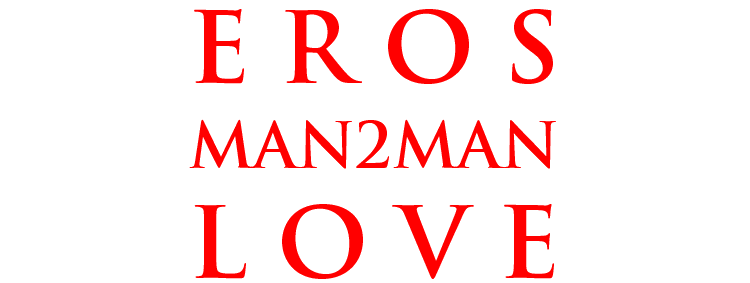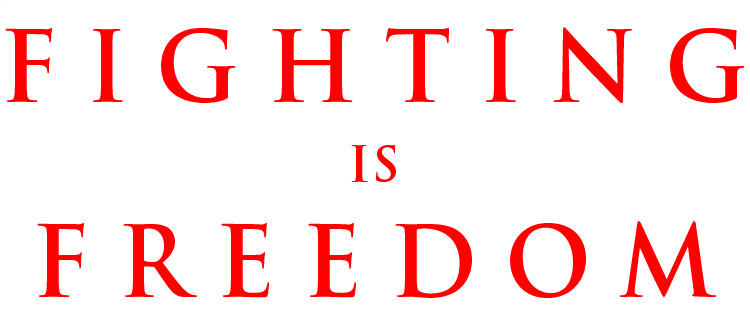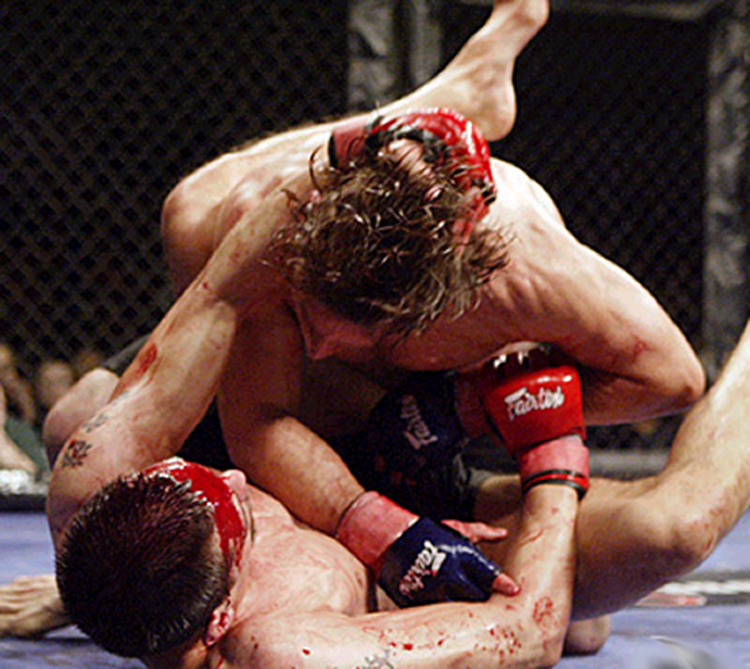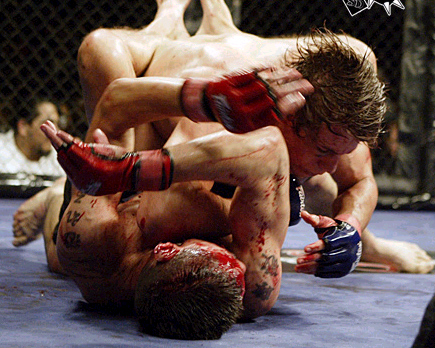




Are people who give happier
than those who don't?


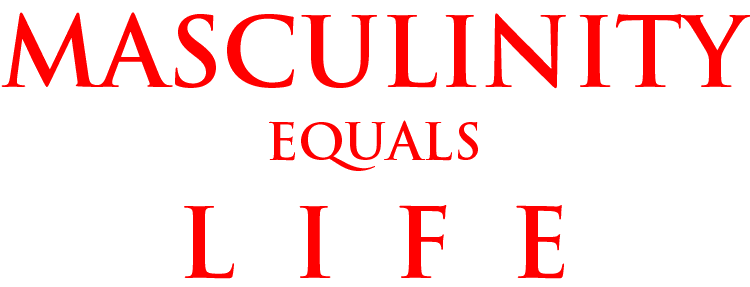

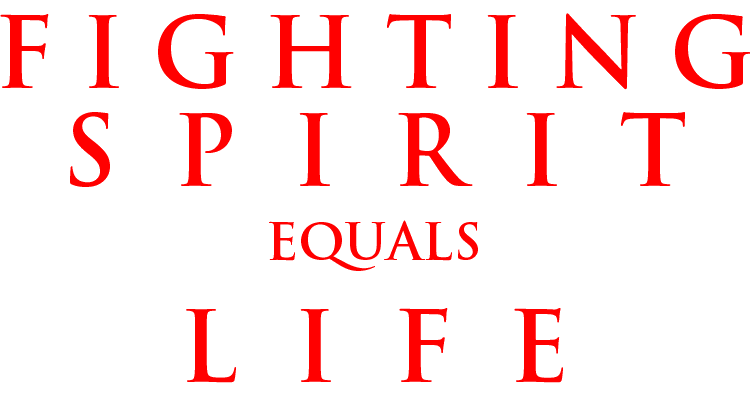


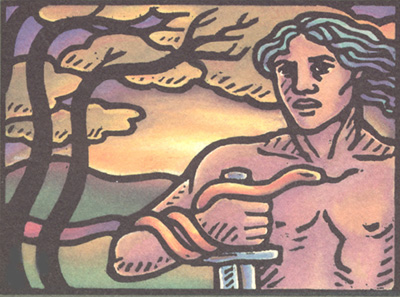


Are people who give happier than those who don't?
1-20-2010
The NY Times recently carried a column by one their regulars, Nicholas Kristof, claiming that people who donate, and not just donate but tithe, are happier than people who don't.
I'm not very fond of Mr Kristof, who's always seemed to me to be a sort of sappy liberal.
But I have to say that a number of the observations he makes, which are based on scientific research, ring true to me --
based on my own experience over the last ten years of people who donate -- and people who don't -- to this site and our Man2Man Alliance;
and also, surprisingly, based on something that Plutarch says about the Spartans -- something which I'd previously discounted -- but which one of Mr Kristof's scientists -- supports.
Here's Mr Kristof's column -- my comments follow:
By NICHOLAS D. KRISTOF
Published: January 16, 2010
Want to be happier in 2010? Then try this simple experiment, inspired by recent scholarship in psychology and neurology. Which person would you rather be:
Richard is an ambitious 36-year-old white commodities trader in Florida. He's healthy and drop-dead handsome, lives alone in a house with a pool, and has worked his way through a series of gorgeous women. Richard's job is stressful, but he spent Christmas in Tahiti. Unencumbered, he also has time to indulge such passions as reading (right now he's finishing a book called "Half the Sky"), marathon running and writing poetry. In the last few days, he has been composing an elegy about the Haiti earthquake.
Lorna is a 64-year-old black woman in Boston. She's overweight and unattractive, even after a recent nose job. Lorna is on regular dialysis, but that doesn't impede her active social life or babysitting her grandchildren. A retired school assistant, she is close to her 67-year-old husband and is much respected in her church for directing the music committee and the semiannual blood drive. Lorna believes in tithing (giving 10 percent of her income to charity or the church) and in the last few days has organized a church drive to raise $10,000 for earthquake relief in Haiti.
I adapted those examples from ones that Jonathan Haidt, a psychology professor at the University of Virginia, develops in his fascinating book, "The Happiness Hypothesis." His point is that while most of us might prefer to trade places with Richard, Lorna is probably happier.
Men are no happier than women, and people in sunny areas no happier than people in chillier climates. The evidence on health is complex, but even chronic health problems (like those requiring dialysis) may have surprisingly little long-term effect on happiness, because we adjust to them. Beautiful people aren't happier than ugly people, although cosmetic surgery does seem to leave patients feeling brighter. Whites are happier than blacks, but only very slightly. And young people are actually a bit less happy than older folks, at least up to age 65.
Lorna has a few advantages over Richard. She has less stress and is respected by her peers -- factors that make us feel good. Happiness is tied to volunteering and to giving blood, and people with religious faith tend to be happier than those without. A solid marriage is linked to happiness, as is participation in social networks. And one study found that people who focus on achieving wealth and career advancement are less happy than those who focus on good works, religion or spirituality, or friends and family.
"Human beings are in some ways like bees," Professor Haidt said. "We evolved to live in intensely social groups, and we don't do as well when freed from hives."
Happiness is, of course, a complex concept and difficult to measure, and John Stuart Mill had a point when he suggested: "It is better to be a human being dissatisfied than a pig satisfied; better to be Socrates dissatisfied than a fool satisfied."
But in any case, nobility can lead to happiness. Professor Haidt notes that one thing that can make a lasting difference to your contentment is to work with others on a cause larger than yourself.
I see that all the time. I interview people who were busy but reluctantly undertook some good cause because (sigh!) it was the right thing to do. Then they found that this "sacrifice" became a huge source of fulfillment and satisfaction.
Brain scans by neuroscientists confirm that altruism carries its own rewards. A team including Dr. Jorge Moll of the National Institutes of Health found that when a research subject was encouraged to think of giving money to a charity, parts of the brain lit up that are normally associated with selfish pleasures like eating or sex.
The implication is that we are hard-wired to be altruistic. To put it another way, it's difficult for humans to be truly selfless, for generosity feels so good.
"The most selfish thing you can do is to help other people," says Brian Mullaney, co-founder of Smile Train, which helps tens of thousands of children each year who are born with cleft lips and cleft palates. Mr. Mullaney was a successful advertising executive, driving a Porsche and taking dates to the Four Seasons, when he felt something was missing and began volunteering for good causes. He ended up leaving the business world to help kids smile again -- and all that makes him smile, too.
So at a time of vast needs, from Haiti to our own cities, here's a nice opportunity for symbiosis: so many afflicted people, and so much benefit to us if we try to help them. Let's remember that while charity has a mixed record helping others, it has an almost perfect record of helping ourselves. Helping others may be as primal a human pleasure as food or sex.
[emphases mine]
Bill Weintraub:
Some of this we already know from Dr Daniel Gilbert, the Harvard psychologist and student of human happiness whose work we looked at in The Strife of Valour: Austerity and Equality at Sparta.
Specifically, we know, via Dr Gilbert, that webs of personal relationship are the foundation of happiness.
This is from an interview with Dr Gilbert in the New York Times:
Q. As the author of a best seller about happiness, do you have any advice on how people can achieve it?
A. ...
We know that the best predictor of human happiness is human relationships and the amount of time that people spend with family and friends.
We know that it's significantly more important than money and somewhat more important than health. That's what the data shows. The interesting thing is that people will sacrifice social relationships to get other things that won't make them as happy -- money. That's what I mean when I say people should do "wise shopping" for happiness.
[emphases mine]
So -- human relationships are "significantly more important than money."
Which is confirmed by Prof Haidt at the University of Virginia:
"people who focus on achieving wealth and career advancement are less happy than those who focus on good works, religion or spirituality, or friends and family."
As we'll see in forthcoming post, that's a point that Sokrates makes as well.
That the universe, both physical and moral, is based not on greed, but on communion and community.
Here's what he says, specifically:
And that those who live lives based on greed and hedonism live the lives of robbers -- "an interminable trouble."
So the ancient wise men -- and the modern researchers -- agree.
And the idea, which Kristof puts forth, that we're "hard-wired to be altruistic" certainly doesn't surprise me -- that's the whole basis of the Warrior Bond and the Warrior Band -- reciprocal altruism and what we call Warrior Altruism.
Clearly, people, and particularly Men, find both very satisfying -- so long as they are indeed reciprocal.
What's more, says Kristof: "nobility can lead to happiness. Professor Haidt notes that one thing that can make a lasting difference to your contentment is to work with others on a cause larger than yourself."
No kidding.
That's something I've urged you to do repeatedly -- and which the vast majority of you don't want to do.
Yet Plato says something very similar -- this is Werner Jaeger's paraphrase:
When society is suffering from a great organic disorder or disease, its recovery can be initiated only by a small but basically healthy association of people who share the same ideas, and who can form the heart of a new organism. That is exactly what Plato means by friendship (φιλια -- philia). It is the fundamental form of all society, in so far as society is not only a natural but a moral and spiritual association of human beings.
So: friendship "is the fundamental form of all society" -- which is "not only a natural but a moral and spiritual association of human beings."
And, says Plato, "When society is suffering from a great organic disorder or disease, its recovery can be initiated only by a small but basically healthy association of people who share the same ideas, and who can form the heart of a new organism."
Friends -- a network of friends -- "who share the same ideas, and who can form the heart of a new organism."
That's what I've urged you to do -- get together with other guys who share the same ideas, and form the heart of a new organism.
Because society is suffering from disorder and disease -- heterosexualization; heterosexism; religous fanaticism; and analism.
And only a group of friends, friends who share the same ideas and ideals, can counter that, and form the heart of a new society.
Once again, Plato and Sokrates agree with Gilbert and Haidt.
But what struck me most in Kristof's piece were two things -- the bit about tithing and the bit about bees.
First tithing:
Warrior Brian Hulme, who lives in the UK, tithes to the Alliance --
and you know what?
In his emails, his posts, and in the hand-written letters he sends me with each donation -- he seems remarkably happy.
Doesn't make sense to a greed-oriented American.
He's on unemployment, surely doesn't have much money, and even less after sending 10% of it to the Alliance -- and yet he's happy.
Wouldn't he be happier buying himself an X-box or something?
Apparently not.
And I have to compare Brian to someone like Carl -- who I talked about in my last donate post -- and who's typical of the guys who write to me.
Translation: I've heard from a gazillion guys like Carl over the last ten years, and they all say and then do the same thing:
They say they're lonely, and they say they wish more guys would get involved with the Alliance.
I write back, and suggest that *they* get more involved and that they donate.
And they don't.
So: Carl wrote to me praising my work and our sites, and asking about a Regional Chapter in his area, of which of course -- we have none.
Fist Fuckers of America has a chapter in his area.
But we don't.
Which I told Carl.
I also explained to Carl that although the sites were busy in the sense of posts, we were hurting very badly for donations.
Here's a bit more of our exchange:
I really enjoy reading your writings and explanations on your sites.
Thank you Carl.
I wish more guys would get involved.
Carl, I do too.
Once again, Carl, one of the most important things you can do in that regard, is donate.
It's not realistic to think that the sort of changes you'd like to see in the m2m world will come about without any effort or struggle.
All movements for change, including ours, require money.
If you won't donate, then you can't realistically expect to see the sort of changes which would help you, and other Men too.
Carl, thank you again for writing, and for your kind words.
And I signed and sent the letter.
Did Carl donate?
NO.
I never heard from him again.
Now, whaddya think?
Do you think that Brian's happier than Carl?
Sure he is.
I know he is because he doesn't write me those sorts of wistful and impotent letters.
Not at all.
His letters are always quite upbeat.
Brian tithes, and I have no question that Brian's happier for doing so.
Do I think I can convince any of the rest of you of that?
No.
But it's the truth nevertheless.
And you can see for yourself.
Read Brian's posts -- here's the list, from first to most recent:
People who donate -- and not just donate, but tithe -- are actually happier than the great mass of you, who think that sitting on your wallets is a major life achievement.
It's not.
Now what about bees?
Well, in his column, Kristof quotes Professor Haidt to this effect:
Curiously, Plutarch, in his writing about Sparta, says something similar.
And Plutarch, I would remind you, was a great thinker and a great man.
He received an excellent education at a time when such counted for something, and just as important, he was also able to think for himself.
In writing his Parallel Lives and his many pieces on moral philosophy, he immersed himself in the writings of others, and also visited, when he could -- and he could certainly could and did visit Sparta -- the places he was writing about.
In addition, he would almost certainly have known about bees first-hand, because he was relatively wealthy, and would have lived on an estate that was farmed, and that had beehives and bee-keepers.
Here's what Plutarch says about the Spartans in his Life of Lycurgus, the Spartan law-giver:
...
In a word, he trained his fellow-citizens to have neither the wish nor the ability to live for themselves; but like bees they were to make themselves always integral parts of the whole community, clustering together about their leader, almost beside themselves with enthusiasm and noble ambition, and to belong wholly to their country. This idea can be traced also in some of their utterances.
For instance, Paedaretus, when he failed to be chosen among the three hundred best men, went away with a very glad countenance, as if rejoicing that the city had three hundred better men than himself. And again, Polycratidas, one of an embassy to the generals of the Persian king, on being asked by them whether the embassy was there in a private or a public capacity, replied: "If we succeed, in a public capacity; if we fail, in a private." Again, Argileonis, the mother of Brasidas [a hero of the Peloponnesian War], when some Amphipolitans who had come to Sparta paid her a visit, asked them if Brasidas had died nobly and in a manner worthy of Sparta. Then they greatly extolled the man and said that Sparta had not such another, to which she answered: "Say not so, Strangers; Brasidas was noble and brave, but Sparta has many better men than he."
Now -- I know that nowadays the idea of folks living not for themselves, but "like bees [...,] to make themselves always integral parts of the whole community, clustering together about their leader, almost beside themselves with enthusiasm and noble ambition, and to belong wholly to their country" --
is bothersome to us.
Firstly because we've been taught to live for ourselves --
and secondly because it sounds archaically "communistic" -- like North Korea.
But first of all Sparta was not a country in the sense of a place like North Korea -- it was, by our standards, a smallish town.
And I don't think Plutarch's trying to say that the Spartans were "brainwashed" and unable to think for themselves.
Indeed, elsewhere in the Life of Lycurgus he speaks of the ordinary Spartan as having a love of philosophy and reason equal to or greater than his love of physical training.
The point Plutarch's making is, I believe, very close to that of Prof Haidt:
"Human beings are in some ways like bees. We evolved to live in intensely social groups, and we don't do as well when freed from hives."
The Spartans lived in intensely social groups.
Ranking within the group was based not on money but on Valour and Virtue.
And the Spartans were happy living that way.
Because -- and this is Plutarch's key point in making his bee-analogy -- they were living NOT for themselves, but for their community, "almost beside themselves with enthusiasm and noble ambition."
The ambition was noble because it was in the service of Virtue and Valour.
And people are happiest, Plutarch's saying, living not for themselves, but for a community which exists to promote those Ideals of Valour and Virtue.
So -- that's the bee analogy Plutarch uses to describe the Spartans at home, in Sparta itself.
Plutarch also says that abroad, people responded like bees to Spartan leadership:
Just as the poets weave their tale of Heracles, how with his club and lion's skin he traversed the world chastising lawless and savage tyrants, so we may say that Sparta, simply with the dispatch-staff and cloak of her envoys, kept Hellas in willing and glad obedience, put down illegal oligarchies and tyrannies in the different states, arbitrated wars, and quelled seditions, often without so much as moving a single shield, but merely sending one ambassador, whose commands all at once obeyed, just as bees, when their leader appears, swarm together and array themselves about him. Such a surplus fund of good government and justice did the city enjoy.
In other words, the Spartans had only to send a single Spartiates -- Spartan of the Warrior class -- someone like Brasidas, who was a renowned military leader and thinker -- to a state or ally who'd requested a Spartan advisor --
and immediately all the people would obey his commands, "just as bees, when their leader appears, swarm together and array themselves about him."
Why?
"Such a surplus fund of good government and justice did the city enjoy."
Notice the word "fund."
Sparta wasn't rich in gold or silver -- indeed, for many years, neither was allowed in the city -- but it had a surplus fund of good government and justice.
And that was because of the webs of relationship, the intensely social groups, dedicated to Valour and Virtue, which Sparta created.
The Agogé was one such intensely social group.
The companies of young men which fought each other in The Strife of Valour were another.
Intensely social, and dedicated to Valour and Virtue.
In other words, what attracted people to someone like Brasidas were his military skills, his Warrior prowess, coupled with the ideals of the Spartan state -- which were communal.
So -- like I say, I don't really like Kristof and I don't normally read his columns.
But I was curious about this one because it was in the "most-emailed" list on the Times' site.
And I was surprised to see him -- and the scholars and scientists he quotes -- make points about giving and the importance of communal life which agree with what I've witnessed while doing these sites and the Alliance -- and what I've also heard from folks like Sokrates and Plato.
People who give are happier that those who don't.
People who build webs of relationship and friendship for themselves are happier than those who don't.
I've steadfastly recommended that you do both.
You don't want to.
But the facts and the research -- not just Bill Weintraub -- but the FACTS and the RESEARCH -- are dead-set AGAINST you.
Just as they are against anal and analism.
Just as they are against infidelity and promiscuity.
I don't care how many crapulous shit-fairies tell you if it's not anal it's not real.
I don't care how many fly-blown libertines tell you if you're not having thirty partners per month, you're missing out.
And I don't care how many GREEDY growthers tell you to Buy, Baby, Buy.
The FACTS and the RESEARCH are against you.
Your selfishness and stinginess will NOT make you happy.
Just won't happen.
While, Kristof says, Nobility -- in the sense of giving and giving of yourself -- can lead to happiness.
The day you figure that out will be the day you stop being lonely and impotent.
And start to become a MAN -- among MEN.
Bill Weintraub
January 20, 2010
Our Basic Human Pleasures: Food, Sex and Giving
Happiness is tied to volunteering and to giving blood, and people with religious faith tend to be happier than those without. A solid marriage [or relationship, I would say] is linked to happiness, as is participation in social networks. And one study found that people who focus on achieving wealth and career advancement are less happy than those who focus on good works, religion or spirituality, or friends and family.
Heaven and Earth and Gods and Men are held together by Communion and Friendship, by Orderliness, Temperance, and Justice.
"Human beings are in some ways like bees," Professor Haidt said. "We evolved to live in intensely social groups, and we don't do as well when freed from hives."
Spartiates' [the full-blooded Spartan citizens of the Warrior class] training extended into adulthood, for no one was permitted to live as he pleased. Instead, just as in a [miltary] camp [while at war], so in the city they followed a prescribed lifestyle and devoted themselves to communal concerns. They viewed themselves absolutely as part of their country, rather than as individuals, and so unless assigned a particular job they would always be observing the boys and giving them some useful piece of instruction, or learning themselves from the elders. Abundant leisure was unquestionably among the wonderful benefits which Lycurgus had conferred upon his fellow citizens. While he totally banned their involvement in any manual craft, there was equally no need for them to amass wealth (with all the work and concentration which that entails), since riches were emphatically neither envied nor esteemed. ... As might be expected, legal disputes disappeared along with coinage, since there was no longer greed or want among them, but instead equal enjoyment of plenty, and the sense of ease which comes from simple living. Except when they went on campaign, all their time was taken up by choral dances, festivals, feasts, hunting expeditions, physical exercise and conversation.
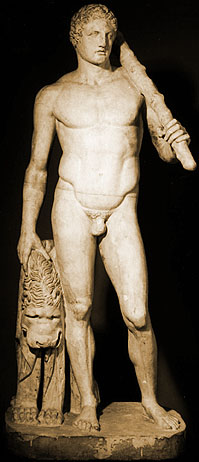

© All material Copyright 2010 by Bill Weintraub. All rights reserved.
Related articles:
Urgent and Critical: No Donations, No Sites
Re: Are people who give happier than those who don't?
1-24-10
Hi Bill,
You mention how people may feel that living as a part of a community sounds "communistic" like North Korea.
Well many people may be surprised to discover that some of the first "communists" (people who live as a community and share what they have) were the Christians! See Acts 2: 44,45 yes they had "all things in common" and after selling their goods "divided them among all, as anyone had need."
Finally were they happy? See verse 46 which ends "they ate their food with gladness and simplicity of heart".
What God gives He blesses me with and I give tithe as a "Thank You" so that others may be blessed by this gift and I hope the work of the Alliance will be able to continue as long as necessary.
Love
Brian
Re: Are people who give happier than those who don't?
1-24-10
Thank you Brian.
And of course Brian's right.
People living as a community and sharing what they have is not a radical idea.
Now, guys, in addition, Mr Kristof has a follow-up column in today's NY Times, titled What Could You Live Without?
You can read it there, if you so choose, for yourselves.
But I'll just say that in the column, he profiles a family named Salwen who sold their very large house, gave half the proceeds to charity, and then bought a smaller house for themselves -- in which they say they're happier:
In a column a week ago, I described neurological evidence from brain scans that altruism lights up parts of the brain normally associated with more primal gratifications such as food and sex. The Salwens' experience confirms the selfish pleasures of selflessness.
Mr. Salwen and his wife, Joan, had always assumed that their kids would be better off in a bigger house. But after they downsized, there was much less space to retreat to, so the family members spent more time around each other. A smaller house unexpectedly turned out to be a more family-friendly house.
"We essentially traded stuff for togetherness and connectedness," Mr. Salwen told me, adding, "I can't figure out why everybody wouldn't want that deal."
So it's a trade-off.
Less stuff, more connectedness, more connectedness, more happiness.
And although most people even in America aren't in a position to do what the Salwens did -- and let me point out to you very forcefully that we're NOT asking YOU to do anything as radical as that --
that we're asking you to donate $10 per month, which is hardly the same as selling your house;
nevertheless the Salwens' experience conforms with what both contemporary psychologists and the world's wise men are and have been saying.
Much of this, in my view, is a question of balance.
Society needs community, society needs self.
Too much self, too little community -- which is what we have and more to the point YOU have now -- and both society and the individual get into trouble.
As Sokrates will tell you:
A man should concentrate all his own and his city's efforts on this one business of providing a man who would be blessed with the needful justice and temperance; not letting one's desires go unrestrained and in one's attempts to satisfy them -- an interminable trouble -- leading the life of a robber.
For neither to any of his fellow-men can such an one be dear, nor to God; since he cannot commune with any, and where there is no communion, there can be no friendship. And wise men tell us that Heaven and Earth and Gods and Men are held together by Communion and Friendship, by Orderliness, Temperance, and Justice...
So: We should be "providing a man who would be blessed with the needful justice and temperance"
And temperance here means balance, and self-control, and moral order -- and austerity.
Because without that, the person lets his "desires go unrestrained" and in attempting to satisfy them -- "an interminable trouble," says Sokrates, which is exactly right -- he leads "the life of a robber."
And as such, he cannot be dear to either his fellow-men or to God:
since he cannot commune with any, and where there is no Communion, there can be no Friendship. And wise men tell us that Heaven and Earth and Gods and Men are held together by Communion and Friendship, by Orderliness, Temperance, and Justice...
No one other than Brian has responded to this message thread -- which is what I expected.
But that doesn't change the Truth:
You cannot be happy by being stingy and selfish.
There's not a psychologist, nor a moral thinker, nor a philosopher who will tell you so.
The facts, the research, and the Wisdom of the Ages are all dead-set against you.
We're "held together," says Sokrates, "by Communion and Friendship, by Orderliness, Temperance, and Justice."
What about Justice?
Is it Just for you to allow a handful of people to support this site and our work -- while you do nothing?
No.
Is it Just for you to lurk, and hide, and troll, while other people come out and state forthrightly what they believe?
No.
Your behavior -- your position -- I daresay your every act -- is indefensible.
Thank you again, Brian.
You're a true Warrior.
Bill Weintraub

© All material Copyright 2010 by Bill Weintraub. All rights reserved.


who reject anal penetration, promiscuity, and effeminacy and
who put forth the truth that one Man should love Another
among men who have sex with men
through the exaltation of their Mutual Manhood;
and the celebration of their Mutual Masculinity.

xxxxThis aspect of our work is the one that's most disturbing and indeed frightening to our opponents:
xxxx
That we combine the Love of Man with the Love of Fighting Spirit.
xxxx
Which is Warrior Spirit.
xxxx
The Warrior God is the Guardian of that Spirit.
xxxx
You may call him Jesus Christ as Robert Loring does.
xxxx
You may call him Ares as did the Greeks.
xxxx
What's important is that you understand and acknowledge
xxxx
the vital role He plays in Your Life.


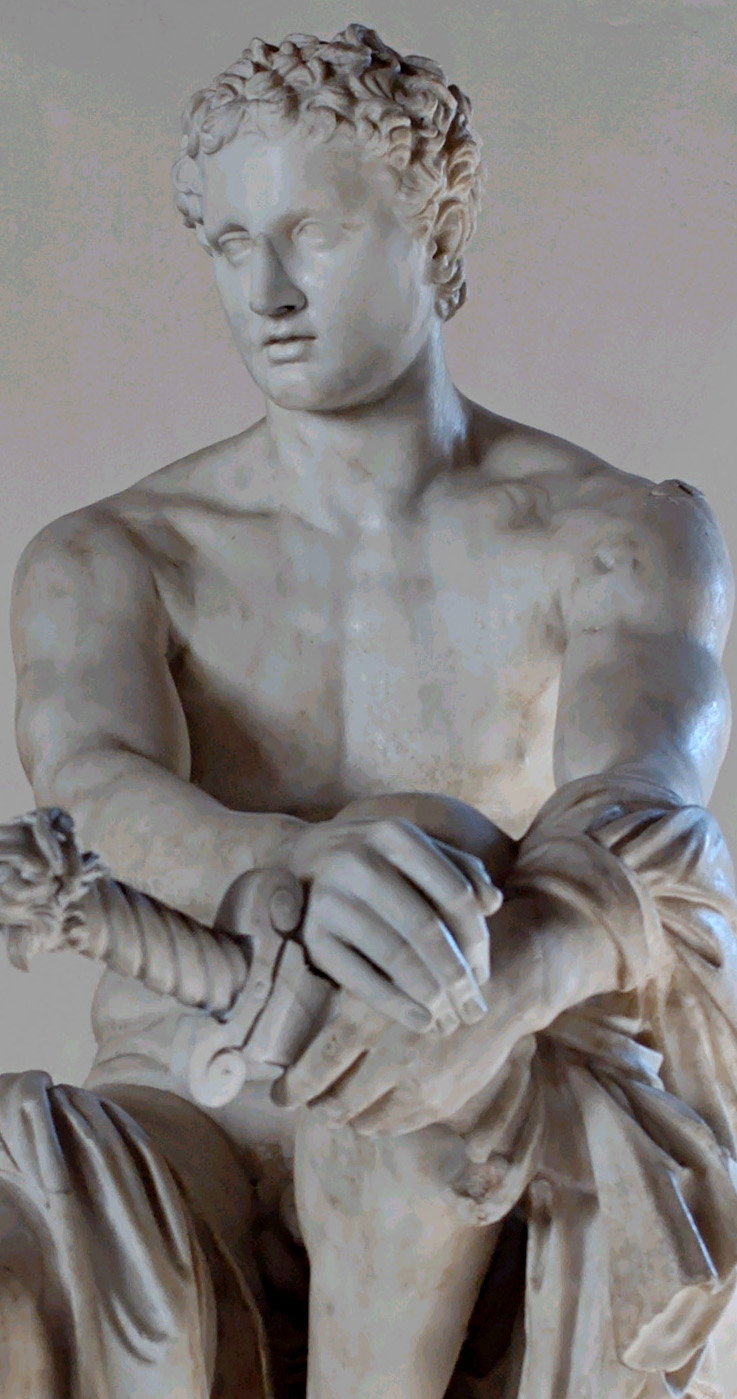



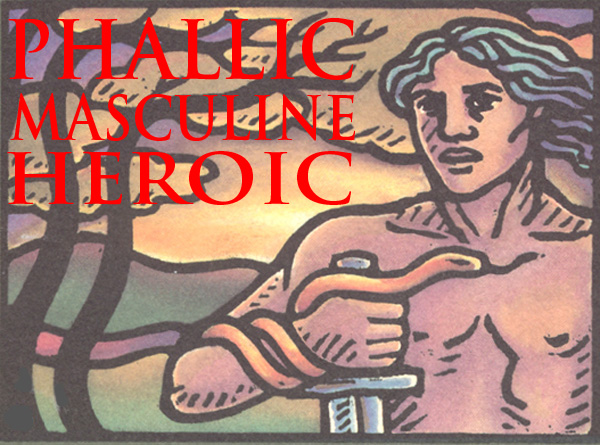



AND


Warriors Speak is presented by The Man2Man Alliance, an organization of men into Frot
To learn more about Frot, ck out What's Hot About Frot
Or visit our FAQs page.

| Heroes Site Guide | Toward a New Concept of M2M | What Sex Is |In Search of an Heroic Friend | Masculinity and Spirit |
| Jocks and Cocks | Gilgamesh | The Greeks | Hoplites! | The Warrior Bond | Nude Combat | Phallic, Masculine, Heroic | Reading |
| Heroic Homosex Home | Cockrub Warriors Home | Heroes Home | Story of Bill and Brett Home | Frot Club Home |
| Definitions | FAQs | Join Us | Contact Us | Tell Your Story |

© All material on this site Copyright 2001 - 2010 by Bill Weintraub. All rights reserved.



